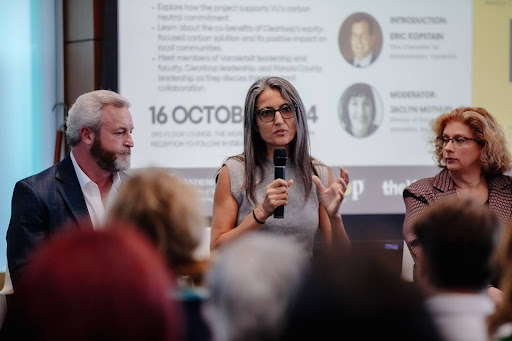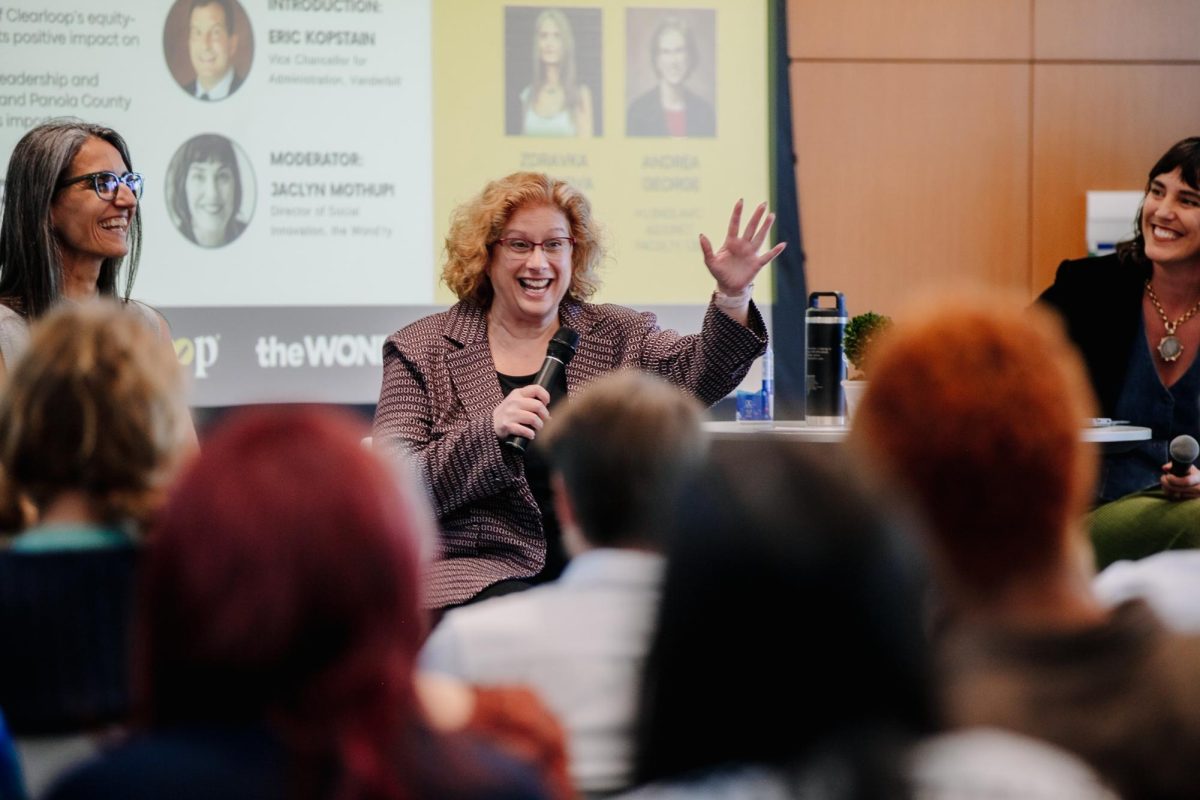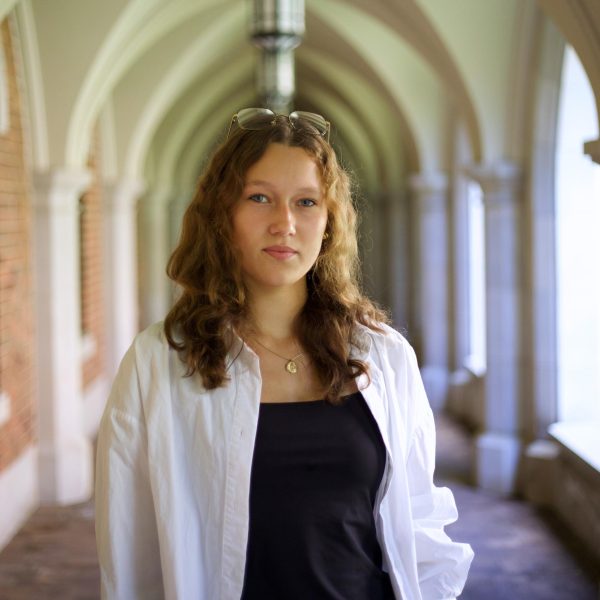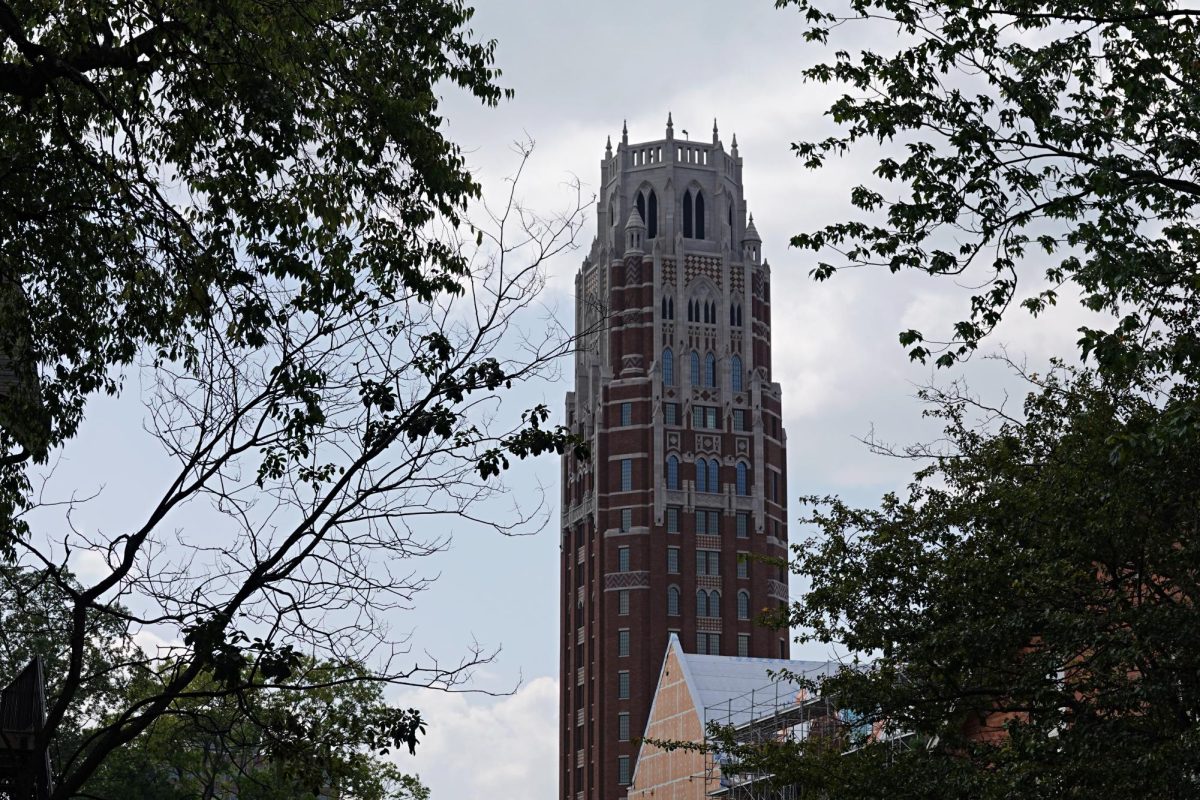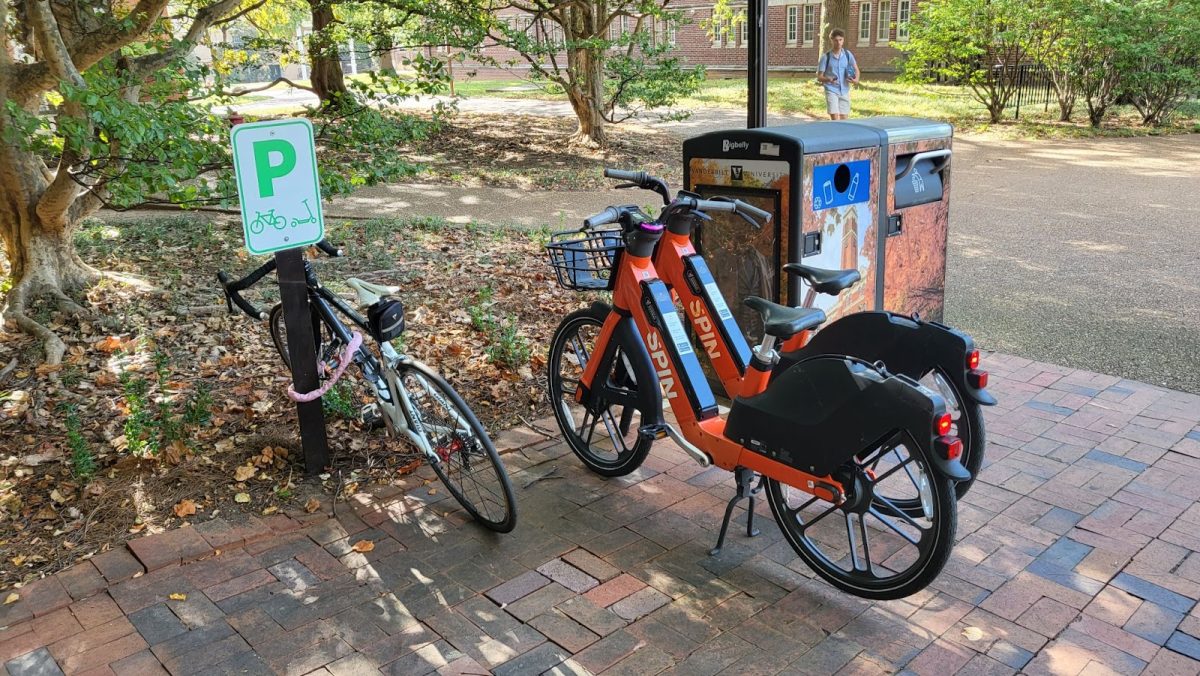Vanderbilt continued its partnership with Clearloop — a carbon solutions company based in Tennessee — with the launch of a new solar farm project in Panola County, Mississippi. The launch was celebrated on campus last week with a farmer’s market on Rand Patio that featured produce from Panola County and a panel discussion about the impact of the partnership the following day.
The Vanderbilt-funded solar farm follows the university’s past investment in solar projects. It will equip clean energy to the community in Panola County, according to the co-founder and CEO of Clearloop, Laura Zapata.
The solar farm will provide clean energy to about 1000 homes annually and will help prevent 128,000 tons of carbon dioxide emissions over the next 40 years. By investing in the construction of this project, Vanderbilt University will receive carbon credits — permits to emit carbon dioxide — for the avoided emissions over the lifetime of the project.
Vanderbilt’s partnership with Clearloop
The Panola County solar farm is the first of three projects that are planned as part of this partnership between Clearloop and Vanderbilt. The solar farm became operational on Sept. 24, and the next solar project is set to be completed next year in Haywood County, Tennessee.
In an Oct. 22 Instagram post, Clearloop expressed gratitude for the collaboration.
“A huge thanks to our partners at Vanderbilt University and in Panola County for helping make this special week possible,” the post reads. “We’re inspired and reinvigorated to press ahead with our mission to expand access to clean energy in those communities across the country that stand to benefit most while helping our partners to meet their climate goals.”
Laura Zapata said the starting idea and goal of the company was to make it easier for big companies to communicate to the public their efforts to ease climate change.
“[We asked], ‘Can we get companies that are saying they want to do something good for the environment to actually put those dollars to work and do something meaningful? And can we get them to understand what those dollars are doing beyond the ‘carbon neutral’, beyond the labels?’” Zapata said. “We need more people to understand what they can do about climate change and how they can take climate action.”
During the Oct. 16 panel discussion, Vice Chancellor for Administration Eric Kopstain said by investing in solar farm construction, Vanderbilt is able to make a lasting impact in decarbonizing the electricity grid and build a legacy of clean energy in southeastern states.
“Our collaboration with Clearloop and Panola county multiplies our environmental impact for years to come through a visible investment that also brings economic development opportunities and health benefits to a community that is striving for innovation and opportunity,” Kopstain said.
Senior Sarah Siman, co-president of Students Promoting Environmental Awareness and Responsibility, expressed appreciation for the partnership between Clearloop and the university.
“Clearloop’s business model of generating carbon credits in a tangible, community-oriented way is a powerful demonstration of how the energy transition does not have to leave anyone behind,” Siman said in a message to The Hustler. “I am excited that Vanderbilt has been so engaged in this project, and it is so important that students learn about this — because there are so many opportunities for all of us to get involved.”
Zapata explained that solar farms are the one of the best options for environmental solutions because the industry of electrical power production is the second biggest contributor to the country’s carbon emissions after transportation.
“For us [Clearloop], it was really important to be very specific about the problem we are trying to solve,” Zapata said. “We recognized that there is this huge challenge with our electricity grid [in] the way we make power.”
Impact on Panola County
The farmer’s market on Rand Patio offered produce locally grown in Panola County, and the panel at the Wond’ry featured experts on the project in Panola County. The panel covered the topics of Clearloop’s founding, the benefits of this collaboration to Panola county’s economy and broader impacts to carbon solutions.
In response to a question about how this project developed from a prototype to reality, Zapata explained that the launch of this project was a “story of collaboration.”
“One of the main things we needed to learn was how to introduce ourselves and this idea in the communities [we want to work in], so we started talking to communities,” Zapata said.
She further explained how Joe Azar, executive director for economic development for Panola County, was one of the first people interested in the project in Mississippi. He agreed to have a meeting where Clearloop representatives pitched the solar farm as a tool that could be leveraged for economic development.
“It not only helps to decarbonize the grid and bring locally sourced power that is affordable and clean, but also will get the attention of other companies and organizations that might not have had a reason to invest in the community but now do,” Zapata said.
Climate studies professor Zdravka Tzankova was also on the panel and said her research and experience has shown that carbon solutions companies can often leave a more negative than positive impact on the community they are working in. However, she described Clearloop’s business model as one of community-engaged project development and project design.
“When I saw Clearloop’s model that essentially uses this tool — solar farms — to bring economic development to communities here in our region, I was extremely excited,” Tzankova said.
Azar described Panola County as a blue collar industry, home to 44 manufacturers and a population of under 40,000 people, and said it has already benefited from the project.
“Clearloop solar farm is on our interstate. 50,000 cars a day drive by and see that. What does that do? You see that and you think ‘there might be something going on here’,” Azar said. “We hope that is what people think, and that will hopefully drive the economy and our market.”
Azar credited this solar project with helping the economic developers in Panola County sign with a company from Georgia on Oct. 11, which will help provide 250 new jobs to the region. This sentiment was further supported by Andrea George, director of environmental, health, safety and sustainability for the university.
“Bringing solar farms into this area signals to other organizations that Panola county is extremely progressive, and it’s right for further investment to bring jobs and innovative technology into the area,” George said during the panel.
“We are really excited about the research and the educational opportunities that this [project] is going to bring Vanderbilt,” George said. “We want faculty and students to be interested and bring ideas about how can we leverage this opportunity. The multitude of benefits is what is really so exciting about this partnership.”
Senior Vivian Cao shared their perspective as an intern on Clearloop’s Commercial Partnerships team.
“I’ve never encountered a company that cares so deeply about the communities they work with,” Cao said. “The impact of this project is even greater — Panola County was so inspired that they even redesigned their logo to include solar farms, which alone speaks volumes about the significance of this project.”
Alison Winters contributed reporting to this piece.




